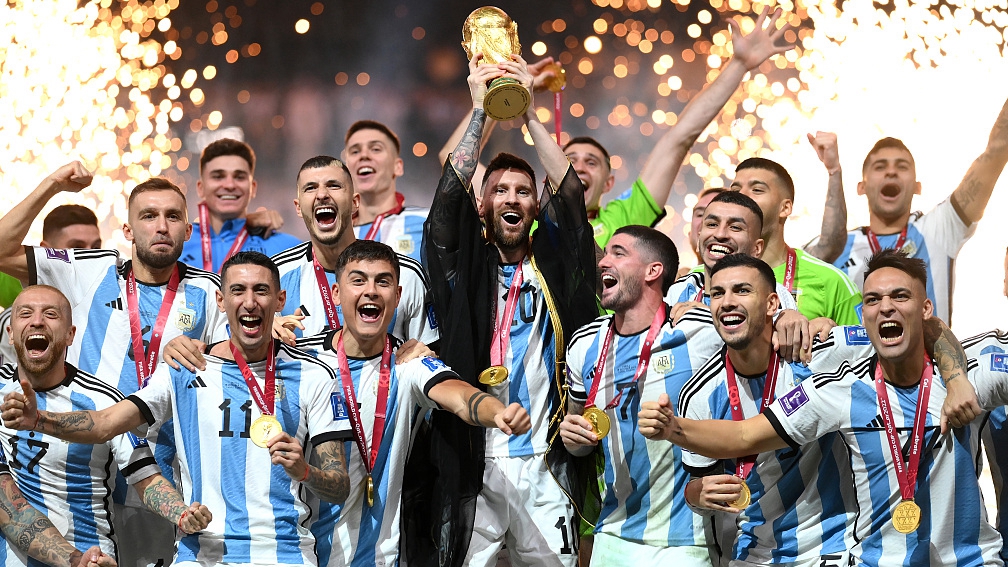
Lionel Messi of Argentina lifts the trophy after winning the World Cup 2022 Final at Lusail Stadium in Lusail City, Qatar, December 18, 2022. /CFP
Lionel Messi of Argentina lifts the trophy after winning the World Cup 2022 Final at Lusail Stadium in Lusail City, Qatar, December 18, 2022. /CFP
FIFA's controversial decision to approve an expanded World Cup with 48 teams and 104 matches has sparked widespread backlash across the world, with the governing body being accused of showing a "complete disregard" for the football community in general.
The 2026 World Cup, being held in the United States, Mexico and Canada, will consist of 12 groups of four, with the top two and the eight best third-placed sides advancing to the knockout stages.
The new structure boosts the tournament from the traditional 64 matches to a remarkable 104 and will last nearly six weeks, rather than the previous edition's 32 days as the last edition in the Qatar world cup.
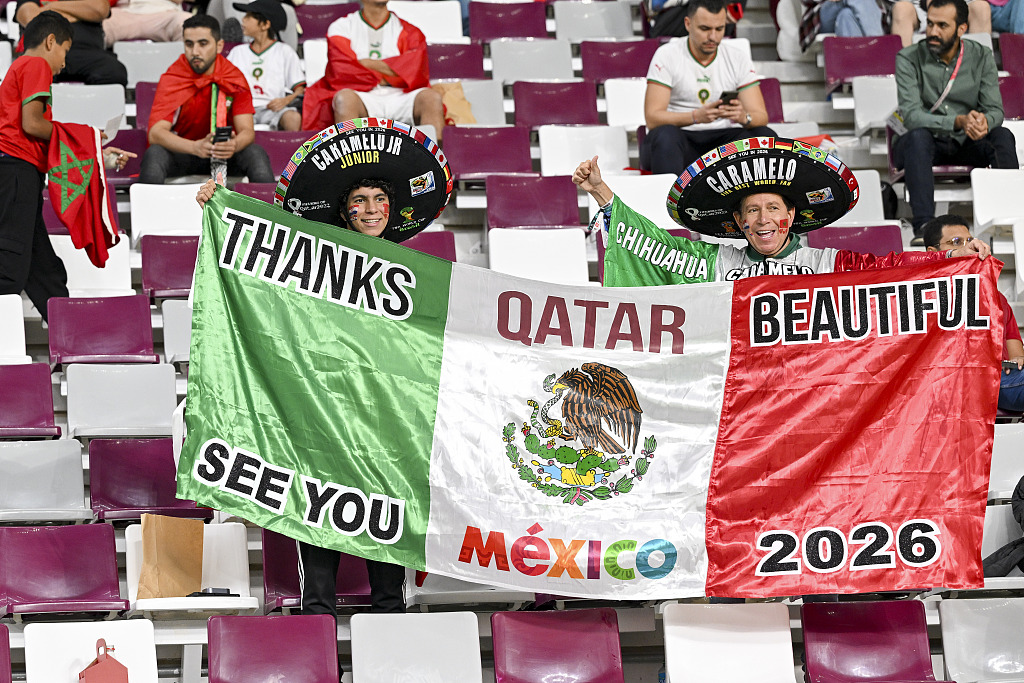
Fans with banners saying "Thank Qatar see you Mexico 2026" prior to the World Cup clash between Croatia and Morocco at Khalifa International Stadium in Doha, Qatar, December 17, 2022. /CFP
Fans with banners saying "Thank Qatar see you Mexico 2026" prior to the World Cup clash between Croatia and Morocco at Khalifa International Stadium in Doha, Qatar, December 17, 2022. /CFP
"The revised format mitigates the risk of collusion and ensures that all the teams play a minimum of three matches, while providing balanced rest time between competing teams," said FIFA, who approved the move at its council meeting in Rwanda on Tuesday.
It insisted that the decision had come after a "thorough review that considered sporting integrity, player welfare, team travel, commercial and sporting attractiveness, as well as team and fan experience."
"Our fundamental objective is to have clarity on this topic, and to have meaningful football matches while protecting the wellbeing of the players and recognising that many regions need more competitive football," added FIFA President Gianni Infantino.
FIFA will have to reduce the pre-World Cup time during which players must be released by clubs to their national teams from 23 days to 16 days in order to accommodate it into an increasingly congested football calendar.
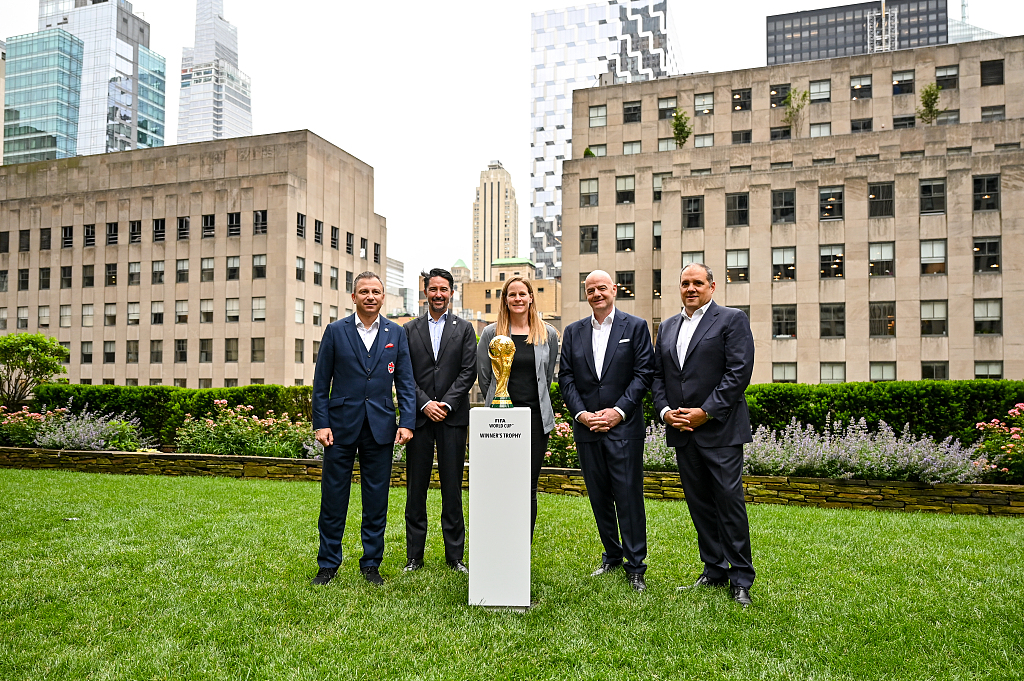
Canadian Soccer Association President Nick Bontis, Mexican Football Federation President Yon de Luisa, President of the United States Soccer Federation Cindy Parlow Cone, FIFA President Gianni Infantino and CONCACAF President Victor Montagliani (L-R) pose for a photo in New York, U.S., June 16, 2022. /CFP
Canadian Soccer Association President Nick Bontis, Mexican Football Federation President Yon de Luisa, President of the United States Soccer Federation Cindy Parlow Cone, FIFA President Gianni Infantino and CONCACAF President Victor Montagliani (L-R) pose for a photo in New York, U.S., June 16, 2022. /CFP
Such moves would inevitably lead to an intensification of FIFA's long-brewing conflict with professional leagues and players' unions. Spain's La Liga was among the first to publicly opposed the new World Cup format.
"FIFA continues its malpractice of making unilateral decisions on the world football calendar, showing complete disregard for the importance of national championships, and the football community in general," read a statement from La Liga.
"FIFA completely neglects the economic damage these decisions inflict on leagues around the world. Leagues were not consulted about any of the changes presented," it added.
"These decisions do not take into account the competitive, sporting and economic impact on national leagues, clubs and players, by further cramming an already overloaded schedule. FIFA only takes into account a small group of clubs and players."
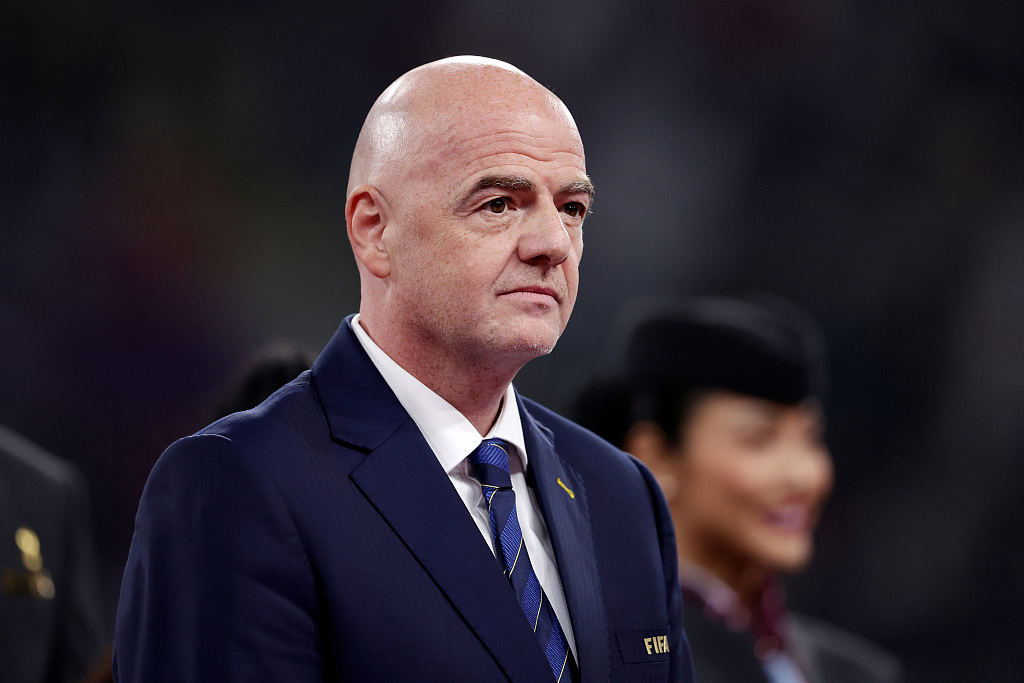
FIFA President Gianni Infantino during the World Cup match between Croatia and Morocco at the Khalifa International Stadium in Doha, Qatar, December 17, 2022. /CFP
FIFA President Gianni Infantino during the World Cup match between Croatia and Morocco at the Khalifa International Stadium in Doha, Qatar, December 17, 2022. /CFP
The stance was echoed by the European Leagues, which represents over 1,000 clubs in 37 professional leagues in Europe.
"We are concerned about the announcements made yesterday by FIFA Council," it said on Wednesday. "All these decisions were taken by FIFA in a unilateral way and without any consultation process with many of the football stakeholders and leagues. Unfortunately, this became a habit in recent years."
Both La Liga and the European Leagues announced that they will team up with the World Leagues Forum, an organization representing professional association football leagues, to work out their next step to counter FIFA's unilateralism.
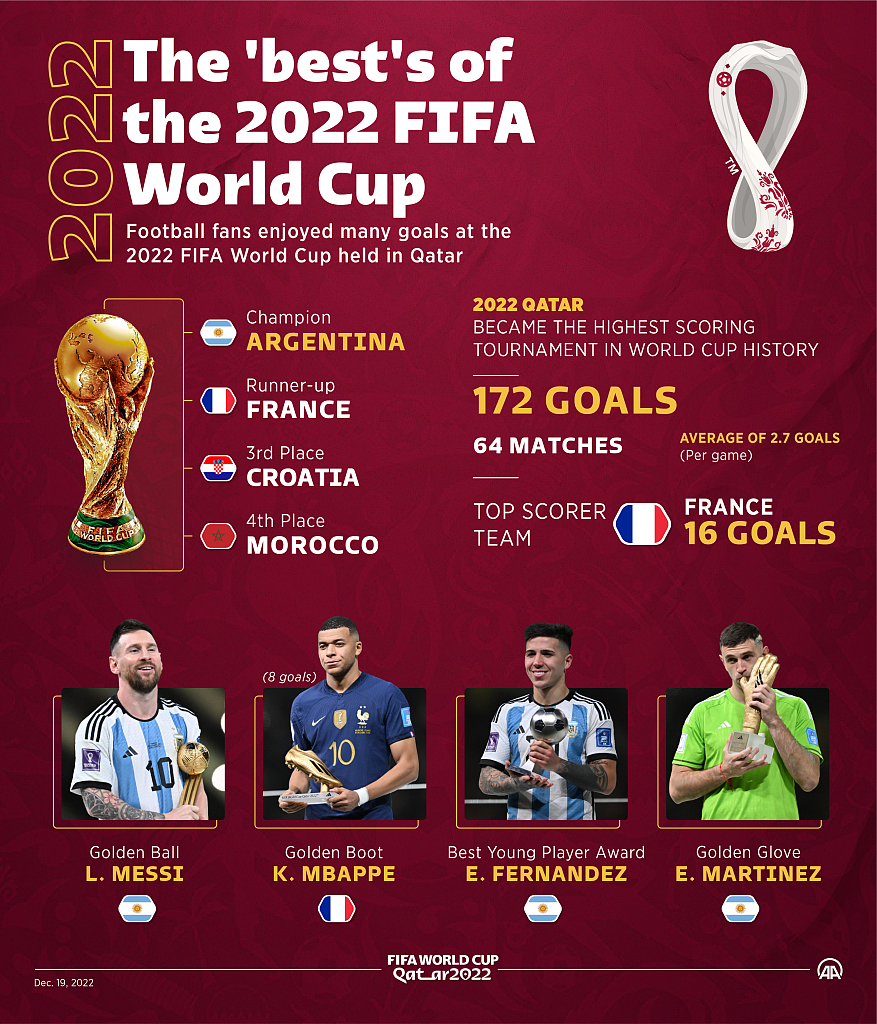
Qatar World Cup 2022 was the showpiece event's last edition with 32 teams and 64 matches. /CFP
Qatar World Cup 2022 was the showpiece event's last edition with 32 teams and 64 matches. /CFP
Meanwhile, the global professional football players' union FIFPRO has reiterated its concerns about the demands on players.
"We are now observing a growing awareness among players about the harmful effects these pressures have on their performance, careers, and personal lives," said FIFPRO's general secretary Jonas Baer-Hoffmann.
"They realize that their match calendar is not sustainable, affects their mental and physical health, and leaves them exposed, and without any protection, to an accelerated cycle of poorly coordinated competitions."